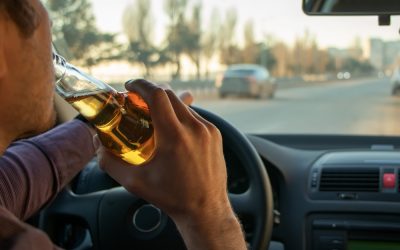
California has very clear rules about when, and how, the police can search someone’s car. You might assume that police would be careful to follow those rules, but that’s not always true. Illegal searches are not uncommon in DUI cases, especially drug DUI’s. They happen for two main reasons:
- The rules are complex and police aren’t always sure whether a rule applies
- Police get too eager to find evidence
Most rights violations are accidental. When in doubt, police tend to follow a “search first and ask questions later” mentality. But even when it’s an accident, violating your rights is still illegal. If the search used in your case was performed illegally, your DUI lawyer can object to it. This can lead to all the evidence gathered during the search, or as a result of the search, to be dropped from the case.
When Is a Search Legal in a California DUI Case?
Contrary to popular belief, police don’t always need a warrant to search a vehicle. There’s a long list of ways they can legally look for evidence, with or without a warrant or even a formal search.
These methods include:
- If the evidence is in plain view. If police pull you over and they can clearly see an open whiskey bottle in the passenger seat, they now have a reason to arrest you. No search was ever conducted, so no warrant was needed.
- If you give consent. If police say, “Do you mind showing me what’s in the trunk?” and you agree, they now have permission to look through the trunk without a warrant.
- In relation to an arrest. Police can search a vehicle without a warrant if it’s part of arresting someone who occupied that vehicle. The rules for what count as “occupying” a vehicle are complex, but in a DUI case it’s usually moot. If you were in the vehicle when they arrest you, or if they think the vehicle contains evidence related to your DUI arrest, they can search the vehicle you were in freely.
- They have “probable cause.” Probable cause means police have a good reason to think the vehicle contains evidence related to a crime, or illegal contraband. For example, if an officer witnessed what looked like a drug deal being conducted from the window of your car, they have probable cause to search your car for drugs.
- Under “stop and frisk” rules to protect police from violence. Normally if police are only detaining you, and haven’t arrested you, they cannot search your car. But this changes if they have reason to believe you’re dangerous or have a weapon in the car. Under “stop and frisk” rules they can now order you out of the car, and search your person and the car for weapons.
- The car is impounded. Once a car is impounded by law enforcement, officers can conduct and “inventory search” to see what the car contains.
Police only need one of the above reasons to search your car. Any one will do. And once they have a reason to search, in most cases anything they find can be used as evidence. If they search your car for weapons under the “Stop and Frisk” rules, and they find open beer cans under your seat, it doesn’t matter that they only started out checking for weapons. They now have evidence of DUI.
What Can I Do If My Rights Were Violated?
Despite all the opportunities police have to perform a search legally, illegal searches are not uncommon. Here are examples of illegal searches:
- Police pull you over and believe you look intoxicated. They ask you if you have any weapons in the car, and you say you do not. You are polite and non-threatening at all times. Police decide to search the car and find an empty bottle. After your arrest, they say they were searching the car for weapons.
- Police say you consented to a search, but you did not.
- You are stopped at a border control checkpoint. Police believe they have probable cause to search your car for illegal immigrants. During the search, they opened a pocket on your backpack and found a flask of liquor. There was no way an immigrant could be hiding the backpack, so opening it was not part of their legal search.
You can see how complex the rules of searches can be. If evidence found in your car is being used against you, it’s worth it to have a professional DUI lawyer review the details of your case. They might find irregularities in the search, or even a clear rights violation.
When a search was done illegally, your DUI lawyer can file a motion to have the evidence from that search excluded. Excluded evidence cannot be used by the prosecution or enter in the case in any way. Once key evidence is excluded, it’s not uncommon for the prosecution to cave and offer you a way out. Sometimes they even drop the DUI charge and give up.
Don’t assume your case is unwinnable until a DUI lawyer looks at it. We can help you speak to a top Los Angeles DUI lawyer for FREE. Just fill out the form to the right and get your free consultation today.






